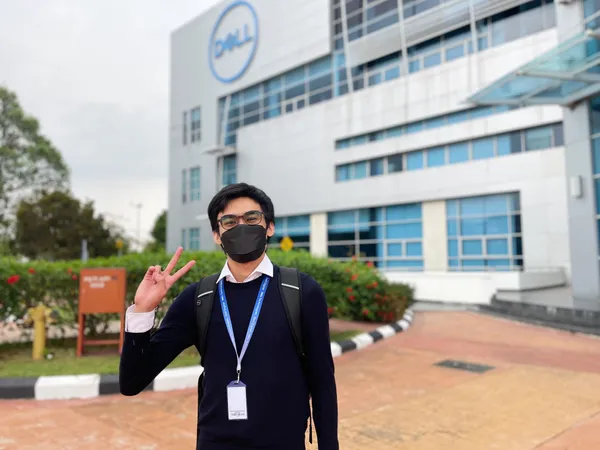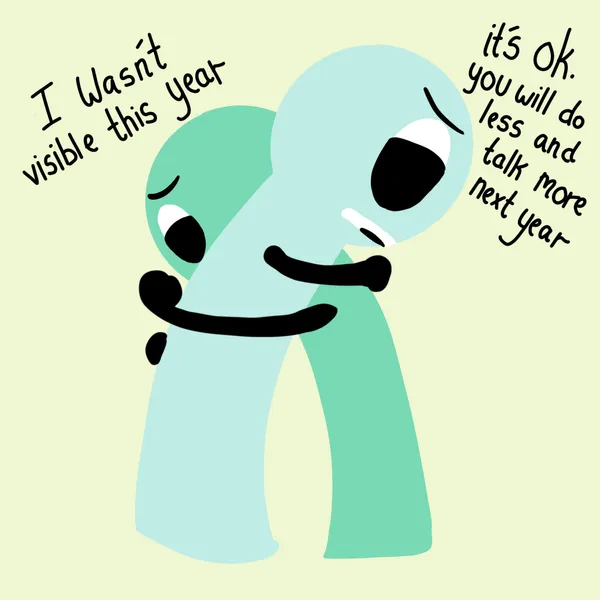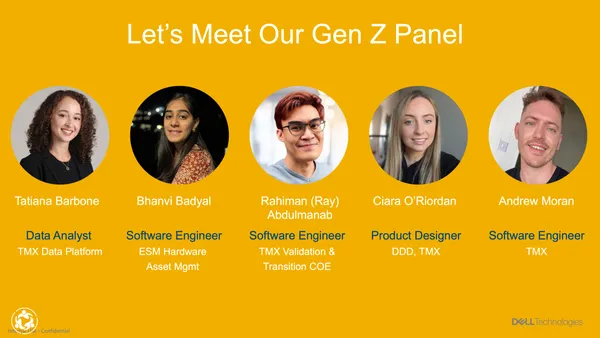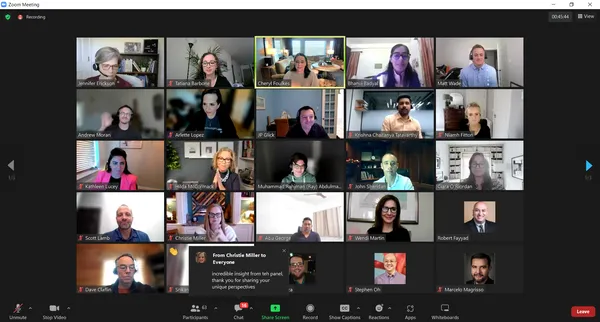
1 Year Work Anniversary: What Have I Learned
- Published on
- Muhd Rahiman · 6 min read

Exactly today just a year ago, I marked my transition from being a fresh graduate to a young, working adult. I still vividly remember how I felt then; slightly feverish after barely recovering from COVID, I nervously stare at my monitor while waiting for the HR onboarding Zoom call to start.
Now that it’s been a year, I can’t help but reflect on the journey filled with ups and down that in many ways, honestly made me more mature and less naïve, especially in navigating the corporate world. So, here are some takeaways of my experience:
The Battle between Hard Work and Visibility
Ah, visibility; that one corporate lingo term that I think almost everybody hates. I remember Lumrah Lanyard persistently tweeted in objection to visibility and how it often overpowers the value of hard work.

You could be working your arse off and be good at what you’re doing. But, if you didn’t invest in showcasing their work and instead let it speak for itself, you’ll be at a huge disadvantage compared to your colleagues who allocated more effort into putting themselves out there.
“You get paid for invisible work, but promoted for visible work.”
Visibility often comes with a negative connotation since it is said to sometimes diminishes the value of hard work and favours people who talk more and do less. While my past 1-year experience cannot confirm or deny that statement, what I can at least affirm is that visibility works and it does matter a lot (whether you like it or not), especially when working in an MNC.
As a naturally outspoken person, I had an easier time and journey to gain visibility among my colleagues. Throughout the past year, I leveraged public speaking skills by volunteering as an emcee and/or speaker for numerous events, including GRADUAN Career Fair 2022: "How Does Dell Support Young Talents with their Career Growth", Dell Digital Automation Day 2022 and Dell Digital Malaysia Regional Summit 2022. I was also part of the organising committees for various events, including Hack2Hire; the hackathon that got me the ticket to Dell, where I was responsible for improving the mentoring experience and curating the problem statement. Along the way, I interacted with team members across multiple regions and worked alongside managers even.
The biggest highlight however has to be the time when I was appointed as one of the APJC representatives to sit on the TSO Global Gen Z advisory panel to suggest areas of improvement to the company's top leadership in addressing dissatisfaction among Gen Z employees. That legit thrusted me to the biggest spotlight, where I was in the rare position to have direct conversations and speak my mind with the TSO Leadership team and all the L3 and L4 leaders. It was a nerve-wracking experience for sure, but my manager who also attended the call told me I did well.


What I can say about visibility is this: The world is a packed and noisy place. Unfortunately, hard work alone is not enough, and letting your work do the sole talking won't suffice. You also need to fight for the recognition of your contribution. You can’t always expect people around you to do it for you. You have to do your part as well. Start with the smallest things, like speaking up more during meetings and actively voicing your opinions (but not just for the sake of doing so). As for the claim on visibility giving an unfair advantage to those who talk more and do less, I guess this depends on the company/team culture and how well your manager is doing their job. For now, what’s within your locus of control is to do more AND talk more i.e. strike a balance between the two.
That being said, this year I'm planning to tone down a bit on my visibility attempts as I feel that at the moment, I'm more well-known for my non-technical contributions/extra-curricular involvements than what I'm being hired for. At the end of the way, what matters most for my career growth is my technical skills development and how I utilised them for my company's benefit.
The Mandarin Elephant in the Room
As one of the few Malays in my team, being the minority in the team means having to get used to being silent at the table when others around you are conversing in a language you don’t understand.
After a year into the workforce, this is unfortunately still a reality that’s difficult for me to embrace. On one hand, I often invalidated myself by thinking that it was just pettiness. On the other hand, I think it’s basic decency to read the room and try to be inclusive.
Don’t get me wrong, it’s not like my team speaks Mandarin 24/7. At least virtually (since I work from home most of the time and by default), my interactions with my team are often conducted professionally in English (and a bit of Manglish). Things get different once we meet up at the office or gather someplace else for events. Oftentimes, I’d stay quiet and look at my phone while the rest of my colleagues are conversing in their mother tongue.
I once considered raising this with my manager during our 1-on-1s, but I decided not to as I fear that I might be seen as petty. Furthermore, even if my manager is open-minded about it and decides to remind everyone during our staff meeting to be inclusive, trust me it’d be so obvious that it was me who brought up the concern since I’m one of the most vocal team members.
Instead, I just chose to ignore it, especially if the conversation that my teammates are having is not work-related. If it is, then I’d continue speaking to them in English to try and ‘politely’ ask them to ‘change their signal’ to the same wavelength.
When I tweeted this on my main Twitter account, I was surprised to learn that this is more common than I thought. Regardless, this was one of the first ‘downs’ of my working experience, and something I hope to be improved down the line.